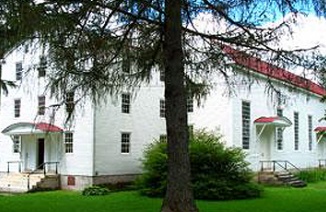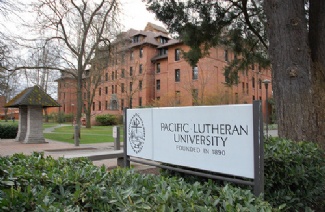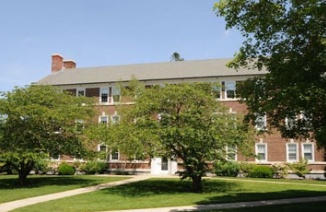SAT考试一般是国际考区和北美地区的区别,主要体现在考试时间安排的不同。国际地区又以亚太地区比较集中,因此对于中国考生而言,亚太地区的考试资料对大家的复习有更大的帮助。下面小编为大家整理了详细的内容,供大家参考!
Passage 1 小说类
选自 Rohinton Mistry “A fine balance”
小说背景是一个叫m住寄宿学校的人,家附近修了条路通向他家开的商店。
文章内容:
自从m家附近修了路,经济得到了发展,每天都在变化。这使得他的爸爸一时接受不了这一变化。爸爸的脾气变的古怪,父子两个没有一天是不吵架的。而奇怪的是每次父亲写的信都充满了爱意与思念,一碰面却吵架。妈妈的说法是要理解爸爸对这种变化的不适应。
经济得到了发展,环境却不断恶化,比如泥石流,植被减少等问题。平时爸爸喜欢独自散步,在原始的生态环境里感受自然。他会抚摸枝干,坐在石头上看日落等。于是邻居便传言M的爸爸怪怪的:跟树木和石头说话。
M知道后即为父亲的行为感到羞愧,又为邻居的gossip感到愤怒。
点评:文章很好理解,题目难度适中。
原文:
Then the promised rewards began rolling up the road into the mountains. Lorries big as houses transported goods from the cities and fouled the air with their exhaust. Service stations and eating places sprouted along the routes to provide for the machines and their men. And developers began to build luxury hotels.
That year, when Maneck came home for the holidays, he was puzzled (and later alarmed) to discover his father perpetually irritable. They found it impossible to get through the day without Fine Balance 249 quarrelling, breaking into argument even in the presence of customers.
“What’s the matter with him?” Maneck asked his mother. “When I’m here, he ignores me or fights with me. When I’m at school, he writes letters saying how much he misses me.”
“You have to understand,” said Mrs. Kohlah, “people change when times change. It does not mean he doesn’t love you.”
For Mrs. Kohlah, this unhappy vacation would also be remembered as the one during which Maneck abandoned his habit of hugging his parents and whispering good morning. The first time that he came down and took his place silently, his mother waited with her back to the table till the pang of rejection had passed, before she would trust her hands with the hot frying pan. His father noticed nothing.
Stomach churning, Mr. Kohlah was absorbed in watching the growth of development in the hills. His friends and he agreed it was a malevolent growth. The possibility of increased business at the General Store was no consolation. All his senses were being assaulted by the invasion. The noxious exhaust from lorries was searing his nostrils, he told Mrs. Kohlah, and the ugly throbbing of their engines was ripping his eardrums to shreds.
Wherever he turned, he began to see the spread of shacks and shanties. It reminded him of the rapidity with which the mange had overtaken his favourite dog. The destitute encampments scratched away at the hillsides, the people drawn from every direction by stories of construction and wealth and employment. But the ranks of the jobless always exponentially outnumbered the jobs, and a hungry army sheltered permanently on the slopes. The forests were being devoured for firewood; bald patches materialized upon the body of the hills.
Then the seasons revolted. The rain, which used to make things grow and ripen, descended torrentially on the denuded hills, causing mudslides and avalanches. Snow, which had provided an ample blanket for the hills, turned skimpy. Even at the height of winter the cover was ragged and patchy.
Mr. Kohlah felt a perverse satisfaction at nature’s rebellion. It was a vindication of sorts: he was not alone in being appalled by Fine Balance 250 the hideous rape. But when the seasonal disorder continued year after year, he could take no comfort in it. The lighter the snow cover, the heavier was his heart.
Maneck said nothing, though he thought his father was being overly dramatic when he declared, “Taking a walk is like going into a war zone.”
Mrs. Kohlah had never been one for walking. “I prefer to enjoy the view from my kitchen,” she said whenever her husband invited her. “It’s less tiring.”
But for Mr. Kohlah, long, solitary rambles were the great pleasure of his life, especially after winter, when every outing was graced by delicious uncertainty—what lay round the next bend? A newborn rivulet, perhaps? Wildflowers he had not noticed yesterday? Among his more awesome memories was a mighty boulder riven by a shrub growing out of it. Sometimes he was the victim of a sweet ambush: a prospect of the valley from a hitherto unseen angle.
Nowadays, every stroll was like a deathwatch, to see what was still standing and what had been felled. Coming upon a favourite tree, he would stop under its branches a while before moving on. He would run his hand along the gnarled trunk, happy that an old friend had survived another day. Many of the rocky ledges that he used to sit on to watch the sunset had been removed by dynamite. When he did find one, he rested for a few minutes and wondered if it would be here for him the next time. Before long they began talking in town about him. “Mr. Kohlah’s screw is getting a little loose,” they said. “He speaks to trees and rocks, and pats them like they were his dogs.” When Maneck heard the gossip, he burned with shame, wishing his father would stop this embarrassing behaviour. He also boiled with anger, wishing to slap some sense into the ignorant, insensitive people.
Passage 2 历史类
选自美国黑人作曲家和诗人Edward Henry “duke” Ellington 给洛杉矶的churchgoers的演讲。
文章内容:
关于黑人奴隶在美国社会中的角色。
开始作者从黑人的话语权引入,通过Hughs的一首诗“WE, TOO, SING AMERICA”来展开黑人对美国社会的各种贡献,包括文化,艺术,社会建设。从黑人参加的战争到被以奴隶贩卖到美洲大陆的那一刻,一直为美国社会做着贡献。他们绝不是起着轻微的作用。最后,黑人还是美国社会的injection,是他们不断激励督促的美国的well-being.
点评:前半段的题目稍有难度,后面好理解,难度适中。
以上就是关于“

















